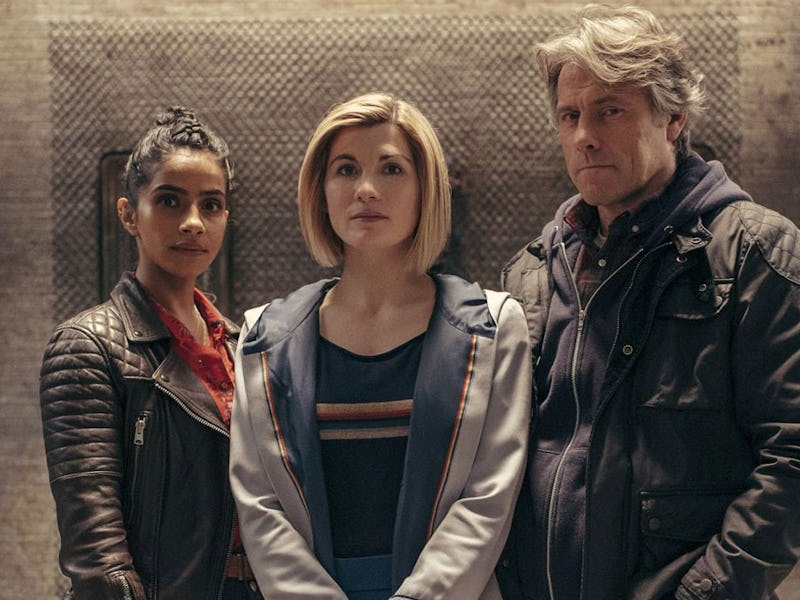Doctor Who is heading for an epic Game of Thrones moment
Doctor Who is borrowing from Game of Thrones.

Doctor Who takes risks. It’s in the series’ DNA.
After introducing the first female Doctor, played by Jodie Whittaker, a few years ago, the long-running British sci-fi series continued its tried-and-true combination of one-off time travel episodes, heartwarming holiday specials, and gripping season finales.
The dramatic potential of Doctor Who reached new heights at the end of Season 12, which completely reinvented the Doctor’s origin story. Now, headed into its thirteenth season (with the thirteenth Doctor), the series is trying something new: a season made up of chapters in one overarching story. Here’s why this serialized style is risky — and how the series could pull it off.
In the series’ Comic-Con @ Home panel, released over the weekend, Doctor Who showrunner Chris Chibnall announced that Season 13 of the series would only span one story, with each episode making up a chapter. This strategy marks a change in pace from Doctor Who’s typical formula of self-contained episodes that feed into a larger plot, which usually gets wrapped up in the finale.
Instead, the new approach trends closer to the epic serialized structure of series like HBO’s Game of Thrones, episodes of which served the larger story at all times and required viewers to patiently wait for the more sweeping narrative to reveal itself.
This won’t be the first time Doctor Who has shaken up its approach to storytelling. From the start, all the way back in 1963 through the 1980s, adventures through time and space with the Doctor were usually organized in multi-part serials, meaning one story was told over multiple weeks. A season spanned a handful of these serials.
Even the one-story season isn’t a new invention. Thanks to budgetary concerns, Season 23 of the original run of Doctor Who was cut down and released as one story told through 14 episodes in 1986. These episodes, known collectively as “The Trial of a Time Lord,” followed the Doctor as he was tried for apparent crimes against the laws of Gallifrey by a High Council of Time Lords.
This season, however, was far from successful and spelled the end of Colin Baker’s time as the Sixth Doctor. Honestly, it was the first death knell for Doctor Who at the time (the series got the ax in 1989, only to get revived in 2005.)
A scene from Doctor Who episode “The Trial of a Time Lord.”
One good omen for this new move: showrunner Chris Chibnall is best known for creating the hit murder mystery series Broadchurch (which coincidentally starred past and future Doctors David Tennant Jodie Whittaker.) Broadchurch was a huge success and, crucially, was a serialized story that kept its audience enraptured until its final reveal.
With Chibnall behind the wheel, maybe Doctor Who can pull off the serialized format and take a page out of the playbooks pioneered by previous hit serials like Game of Thrones. Jacob Anderson, known for his role as Grey Worm in Game of Thrones, will play a role in the new season of Doctor Who, though it’s unclear how much his character will play into the series’ new direction.
Is this season of Doctor Who doomed to repeat history and run itself aground while trying something new? In this instance, only time will tell.
Doctor Who Season 13 will premiere in 2021.